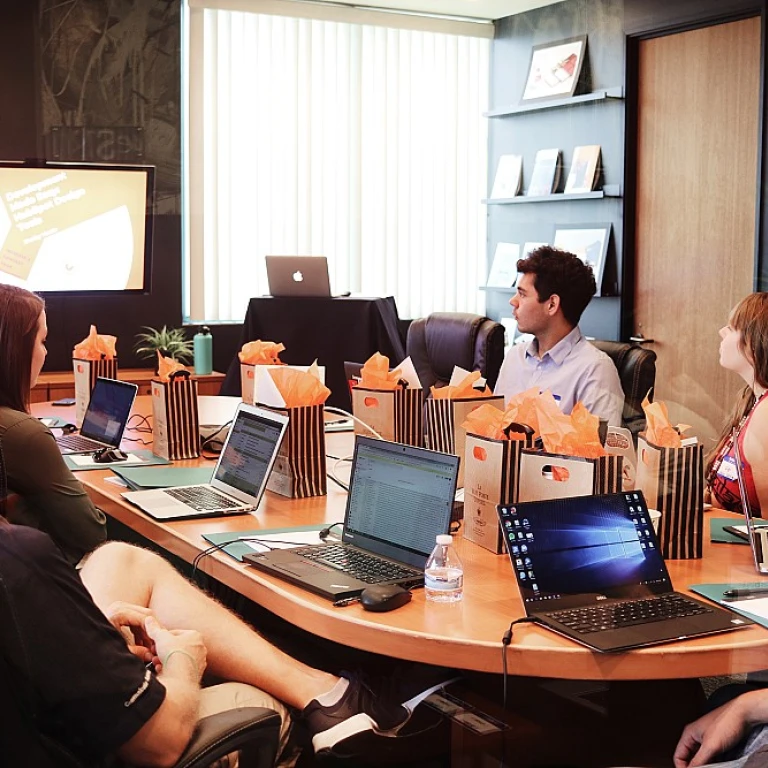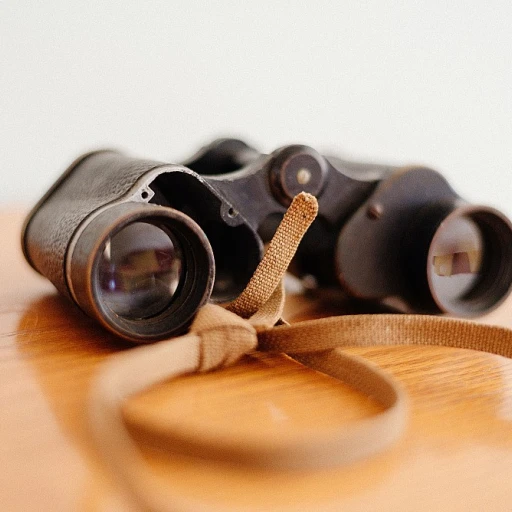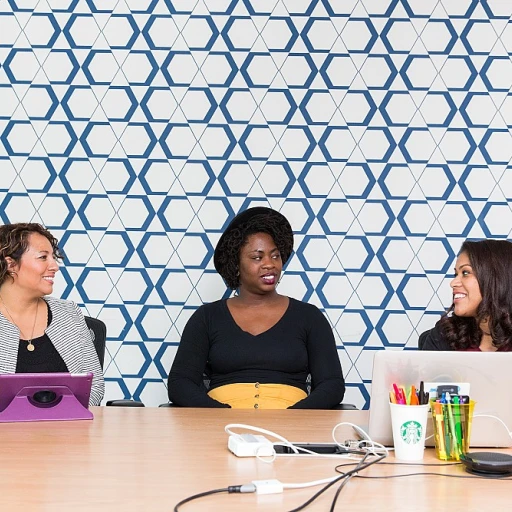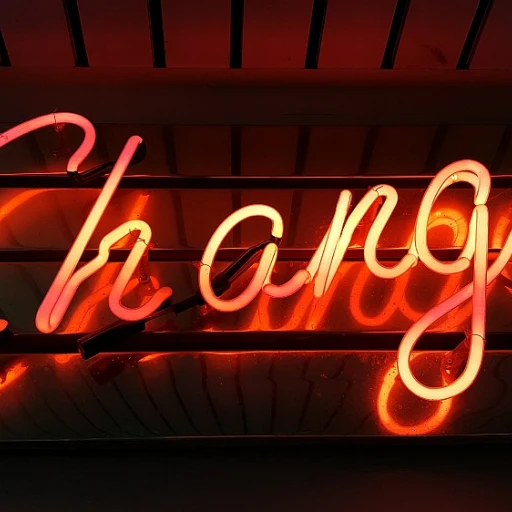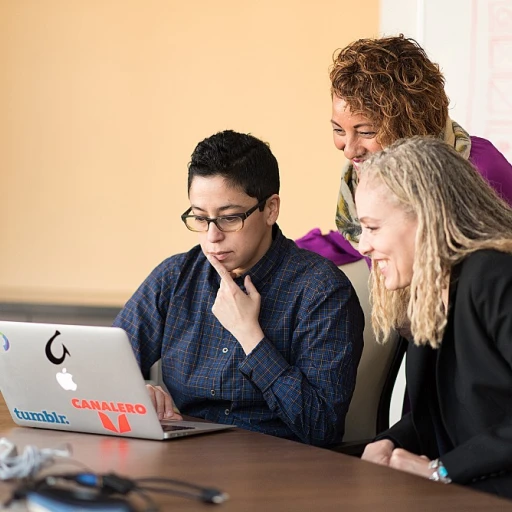The Rise of Premium Educational Tools
Transformative Tools Redefining Education
The world of luxury is steadily seeping into the realm of education, ushering in an era where the curriculum is bolstered by opulence and cutting-edge innovation. The rise of premium educational tools is reshaping the landscape, making learning an experience to savor, akin to indulging in luxury goods. This trend is not just about the allure of high-end tech but also about enhancing the quality and effectiveness of education through sophisticated means. In today's digital age, tech and innovation have become central to effective learning. Luxe educational tools, including bespoke software and advanced digital platforms, offer an elevated learning experience that mirrors the refinement seen in the luxury industry. Business schools and universities are increasingly adopting these high-tech solutions to provide students with unparalleled learning opportunities. These tools do not only enhance educational delivery but also prepare students for future roles in luxury management and other demanding sectors. Luxury brands are now entering the educational space, offering exclusive partnerships with institutions. Such collaborations bring an air of exclusivity to programs, compelling students to engage more deeply with their studies. For instance, luxury management programs are integrated with experiential learning activities, providing students with hands-on experience that mirrors real-world applications in the luxury business. As international education embraces these luxury-infused trends, it's important to recognize the broader implications. Luxe educational tools have the potential to drive sustainable development, ensuring that students are equipped with skills to thrive in an increasingly competitive global luxury market. The addition of social media and digital platforms into educational practices offers an invaluable balance of theoretical and practical knowledge. In summary, premium educational tools are not merely an embellishment but a valuable asset that adds depth to the quality of education offered by high-ranking institutions. The integration of luxury into education not only reflects industry trends but also underscores a commitment to grooming future leaders in luxury brand management and beyond. For an even deeper dive into how augmented reality is enhancing training environments, you can explore this related article.Virtual Reality and Augmented Reality in Classrooms
In the realm of luxury education, virtual reality (VR) and augmented reality (AR) technologies are beginning to transform classrooms into immersive spaces. These innovative tools are redefining the educational experience, particularly within the management and business sectors of the luxury industry. By integrating these cutting-edge technologies, schools are providing students with enhanced learning opportunities that are both interactive and engaging.
Immersive Learning Experiences
VR and AR offer students a virtual space where they can explore international luxury markets, dissect luxury brand management cases, and simulate real-world business challenges. Students benefit from a hands-on experience without the constraints of traditional learning environments. This immersive approach enables learners to develop practical skills needed in the global luxury business, preparing them for managerial roles within the industry.
Transforming Curriculum and Engagement
The use of VR and AR in education is not just a gimmick but a strategic shift that enhances student engagement and learning outcomes. With the ability to simulate high-stake business decisions and walk through luxury brand history, these technologies help in understanding complex concepts. Moreover, they encourage students to interact with content actively, rather than passively absorbing information. This shift is crucial in luxury management education, where intricate detail and brand emphasis are paramount.
Challenges and Considerations
While VR and AR present numerous opportunities, challenges such as tech accessibility, cost, and integration remain. Schools must consider privacy policy implications when deploying these technologies extensively. Furthermore, there's a need for a sustainable development strategy to ensure that this digital transition aids long-term educational goals.
As these trends continue to evolve, the application of VR and AR in luxury education showcases how the digital revolution in classrooms aligns with industry demands. Luxury schools and universities are at the forefront, adapting curricula to match the pace of technological innovation, thus ensuring that students remain competitive in the ever-expanding luxury market.
Artificial Intelligence as a Teaching Assistant
The Role of AI in Educational Excellence
Artificial Intelligence (AI) is making waves in the realm of educational technology, transforming how luxury and mainstream institutions alike approach teaching and learning. As global education faces evolving demands, AI is proving to be a formidable ally in enhancing the educational experience—both in online platforms and traditional classrooms. AI technology is readily finding its place as an assistant in various educational settings. These intelligent systems can process and analyze massive amounts of data faster than any human, offering unparalleled insight into student progress and learning habits. By understanding these patterns, educational institutions can individualize learning paths, tailoring the curriculum to meet specific student needs and harness sustainable development, thus increasing engagement and effectiveness. Luxury brands and business schools, particularly those focusing on sectors like luxury management and global luxury markets, are increasingly leveraging AI to develop cutting-edge curriculums. These programs offer students a direct hand in experience with real-time simulations and predictive analytics, crucial for understanding the ever-changing luxury market dynamics and luxury business management. The integration of AI also extends to providing support beyond traditional learning metrics. AI can help manage administrative tasks, allowing educators to focus more on teaching rather than paperwork. It seamlessly delivers educational content, assists in grading, and even acts as a responsive support system for student inquiries. With AI as a digital teaching assistant, the potential for a more personalized, efficient, and engaging learning environment is immense. While the benefits are substantial, it's important to approach AI with caution, considering the possible implications related to data management and privacy policy concerns. A careful balance is imperative to ensure that the integration of technology aligns with ethical standards and enhances human-centric education. In summary, AI is reshaping how education is delivered and experienced, bringing about a new era of luxe education where technology and luxury merge. The prospects are promising, marking a significant trend in higher education circles, particularly in luxury industry-focused programs. For more insights into the role of AI in various sectors, you can explore this insightful article.The Impact of Luxury on Student Engagement
The Fusion of Affluence and Student Motivation
The incorporation of luxury in educational environments is reshaping the very way students engage with their learning experiences. Luxury brands and cutting-edge technologies are no longer confined to the realms of retail or hospitality; they are becoming integral to the way schools and universities design curriculums and learning spaces.
One of the most significant drivers behind this trend is the emergence of premium educational tools and technologies that promise to enhance learning experiences. International students are particularly drawn to schools that offer high-end tech experiences, as these often align with the level of luxury they are accustomed to in their personal lives. As such, integrating luxury goods and services into the education sector can be seen as a form of innovative brand management that bolsters a school's reputation and attractiveness.
Moreover, luxury programs often include hands-on experience with global luxury markets, allowing students to gain first-hand insight into the management and business strategies of established luxury brands. This approach not only prepares students for a career in the luxury industry but also enriches their overall educational journey, making it more vibrant and engaging.
Educational institutions are finding that the allure of luxury can significantly boost student motivation. The prospect of participating in a digital, luxe learning environment appeals to prospective students who seek a blend of traditional education with modern, lavish experiences. This appeal is not just about indulging students with extravagance, but about offering a holistic education that prepares them for the demands and opportunities of the luxury business world.
However, it’s essential to consider the ethical implications and challenges associated with introducing luxury into education. The line between genuine enhancement of learning and excessive consumerism is thin, and schools must remain committed to sustainable development practices. Focusing on long-term value, rather than short-lived trends, is crucial. Education providers need to ensure that privacy policies are in place to protect student data, especially when leveraging technology and social media platforms for brand-building activities.
In conclusion, the luxury-oriented classroom is not merely a passing trend but an evolving concept within higher education. With the involvement of senior directors from luxury brands in educational development, schools are not only enhancing their curricula but also redefining student engagement and learning outcomes in innovative ways.
Challenges and Ethical Considerations
Considerations in the Luxe Education Environment
The surge in luxurious teaching technologies presents both opportunities and challenges in education. As educational institutions adopt cutting-edge tools like virtual reality and artificial intelligence, they must address a variety of ethical considerations. One major concern is privacy. With advanced tech capabilities come potential risks regarding the management and protection of student data. Schools and universities need robust privacy policies to ensure data is handled responsibly and securely.
Moreover, the integration of luxury goods within classroom settings raises questions about equity and accessibility. While students in prestigious schools may reap the benefits of state-of-the-art resources, there's a risk of widening the gap between those who can access luxe education and those who cannot. This echoes broader trends in the luxury market, where exclusivity is a key brand ingredient.
The sustainability of such advancements also comes into question. As global luxury education evolves, institutions must consider how to align with sustainable development practices. Ensuring that luxe elements in the curriculum are balanced with social responsibility can influence both student engagement and the institution's brand reputation.
For educators and senior directors in the luxury industry, these challenges demand strategic thinking and inspiration from other domains, such as luxury management and brand innovation. By incorporating case studies of successful integrations and hands-on experience with premium tools, education can provide a meaningful and comprehensive experience that prepares students for the digitally-driven luxury business landscape.
As luxury brands and institutions navigate these shifts, they must also remain aware of how their approaches to technology and luxe experiences could impact student involvement. Luxury education should not only focus on providing state-of-the-art tools but also ensure that programs remain inclusive, ethically driven, and aligned with global standards.
Future Trends in Luxe Education
Luxurious Pathways in Education's Future Landscape
As we look to the horizon of educational advancement, the integration of luxury and technology continues to carve new pathways. The educational sphere, enriched by premium tools and technologies, is poised to redefine how students engage and learn, much in line with the prevailing trends in the luxury market.
The luxury industry, known for its emphasis on exclusivity and quality, offers valuable insights into the future development of luxe education platforms. Business schools around the world are beginning to incorporate luxury management into their curricula, offering students hands-on experiences through partnerships with international luxury brands. This approach not only enhances the learning experience but also aligns with the broader objectives of luxury management and sustainability.
Moreover, innovations such as virtual reality (VR) and augmented reality (AR) mentioned in earlier sections of this blog, demonstrate the potential of tech-driven luxury experiences in educational settings. These tools have the potential to transform digital education and provide students with immersive learning opportunities that rival traditional methods.
The growing emphasis on artificial intelligence (AI) as a teaching assistant in luxe education is also noteworthy. AI can personalize the learning journey, offering tailored feedback and support, much like a senior director might guide a luxury brand's strategy.
In addition to the integration of cutting-edge technology, the future of luxe education is increasingly focused on sustainable development. Schools and universities are expected to incorporate sustainable practices into their programs, aligning with the values of the global luxury market. This trend not only addresses ethical considerations but also resonates with the younger, more socially-aware generation of students.
Indeed, as we move forward, luxury brands involved in the education sector will need to balance innovation with the ethical implications of data privacy and the social media influences on students. The ability to navigate these challenges successfully will define the success of luxe education programs in the coming years.
